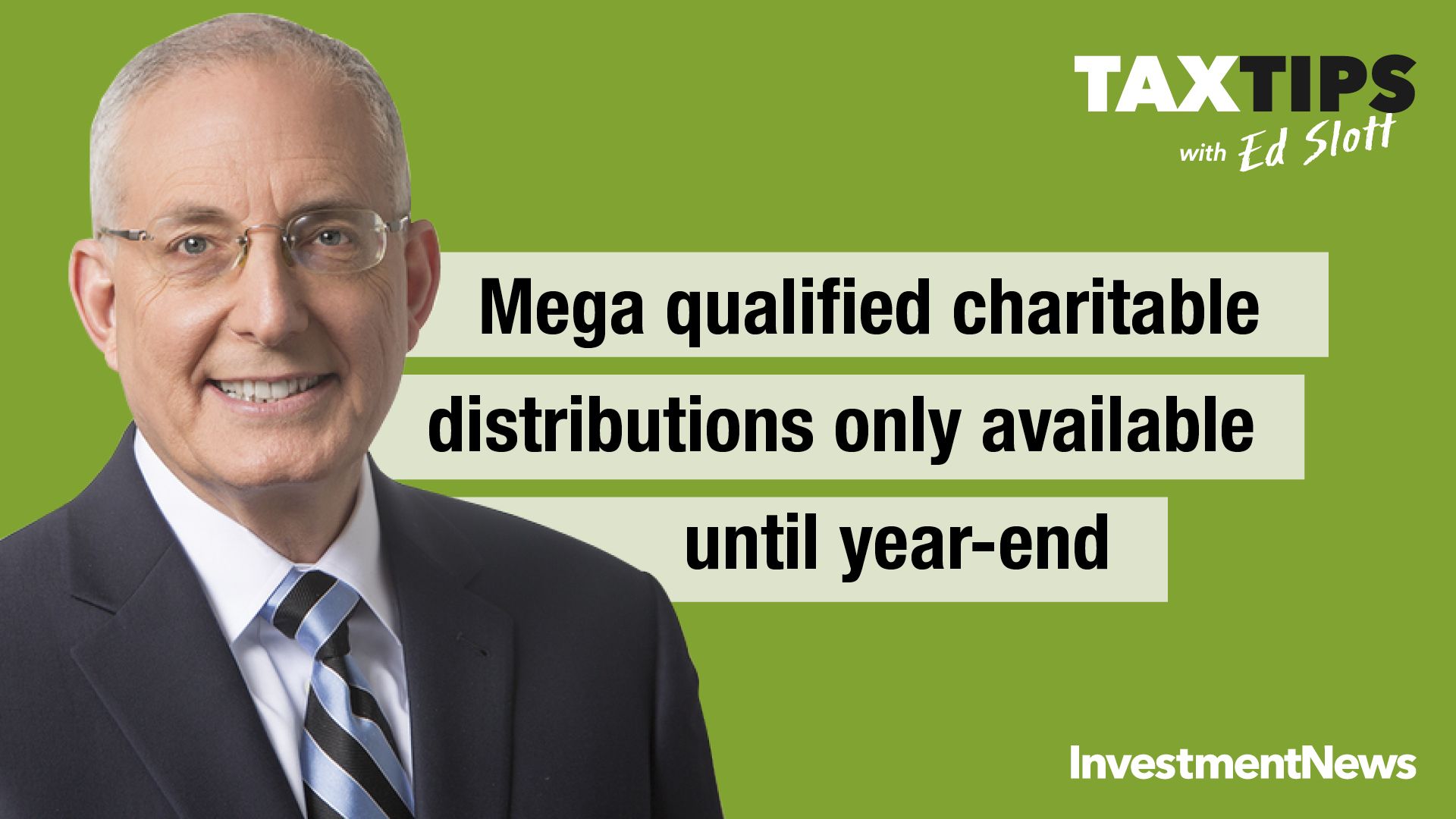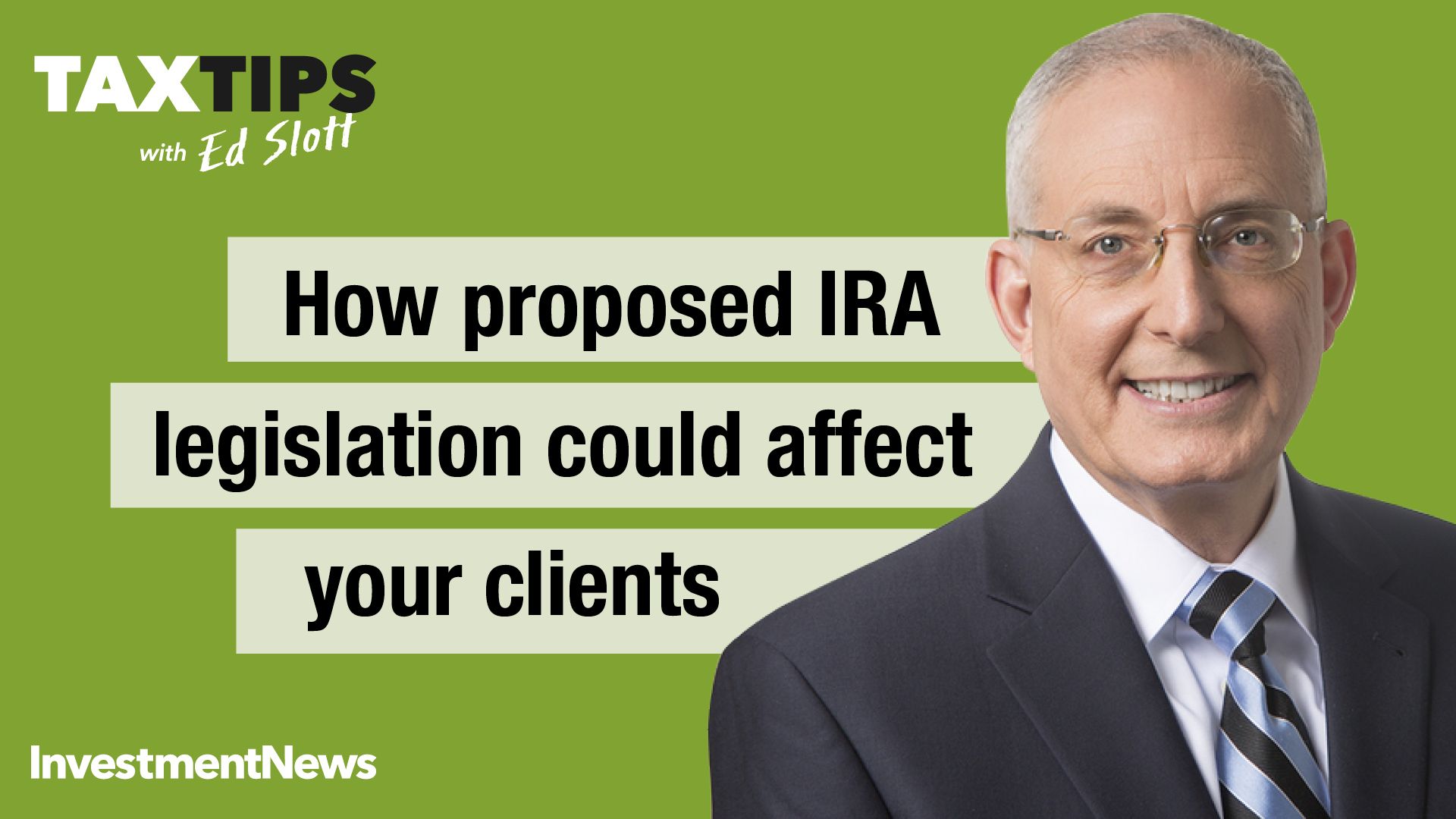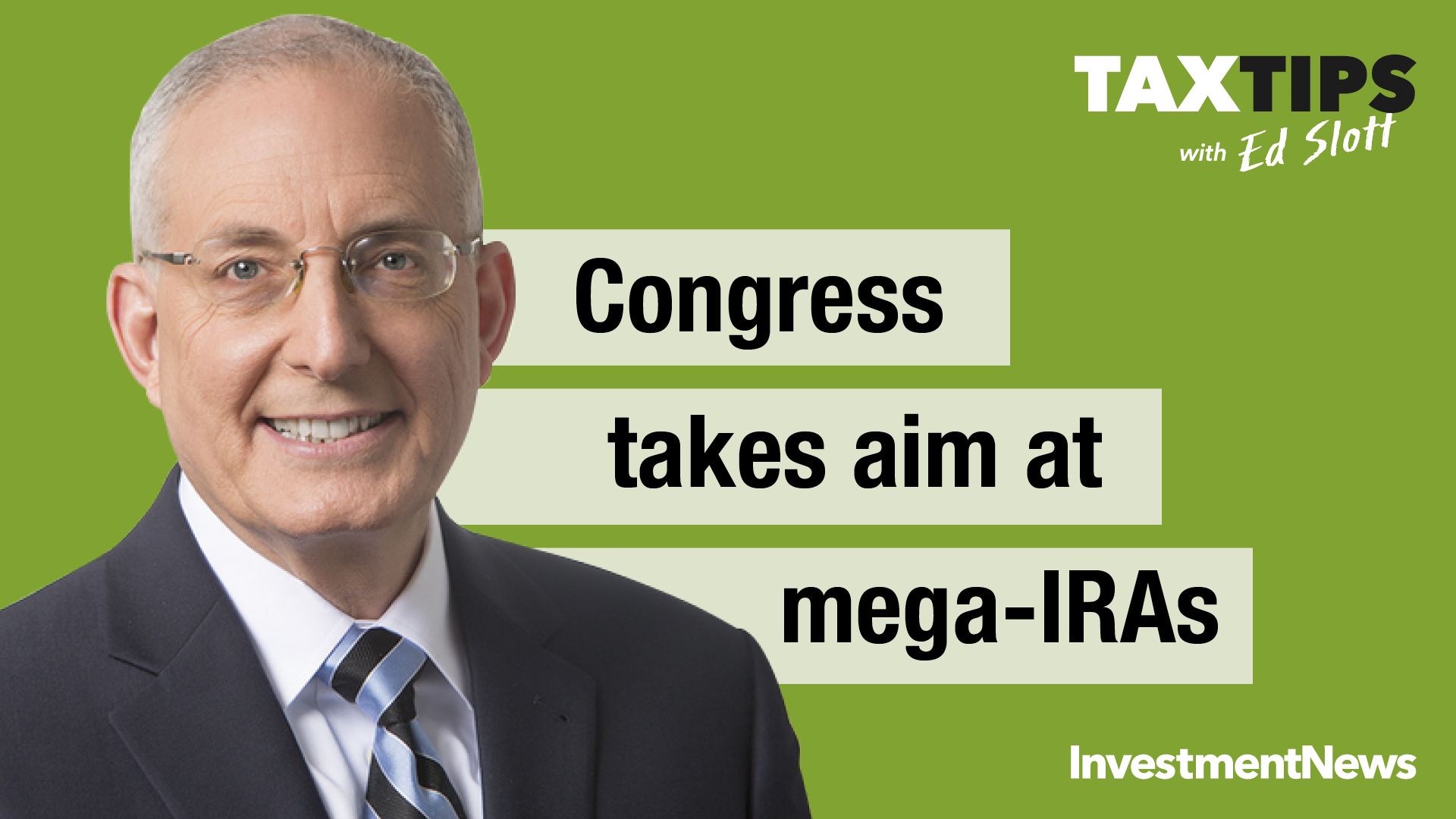Ed Slott: Make sure your small business clients consider this before they convert IRAs to Roths
Details of the qualified business income deduction rules can spell trouble for clients if a Roth conversion boosts income, said the tax guru and founder of Ed Slott & Co.
Tax Tips with Ed Slott
Transcript:
Here’s some Roth Conversion advice for your small business clients.
Now many of them got caught flat footed, actually a lot of CPAs and tax preparers got caught flat footed last year, because of the change in the law – I’m talking about the new QBI deduction, Qualified Business Income deduction.
It first appeared on 2018 tax returns. But there’s some coordination, so this is a 20% deduction that most of your small business pass-through clients will get if they are under these large income limits, which most are. This applies to pass-through businesses including sole proprietorships that file a schedule C, LLCs, S Corps and partnerships.
So where does a Roth Conversion come in?
Well obviously Roth Conversions increase your income, so you may have to watch it, you don’t want a Roth Conversion that increases income so high that they lose the 20% deduction. Then there’s another quirky rule where a Roth Conversion can actually increase the QBI deduction because the QBI deduction is based on ‘qualified business income’. It’s a quirky rule that says: If taxable income is below qualified business income you only get the 20% on the lower number, the taxable income. In that case, a Roth Conversion can actually increase taxable income to the point that it increases the QBI 20% deduction. But no so much that it blows it out of the water.
So you have to be careful.
But this is something every advisor should address when talking about Roth Conversions with your small business clients.



